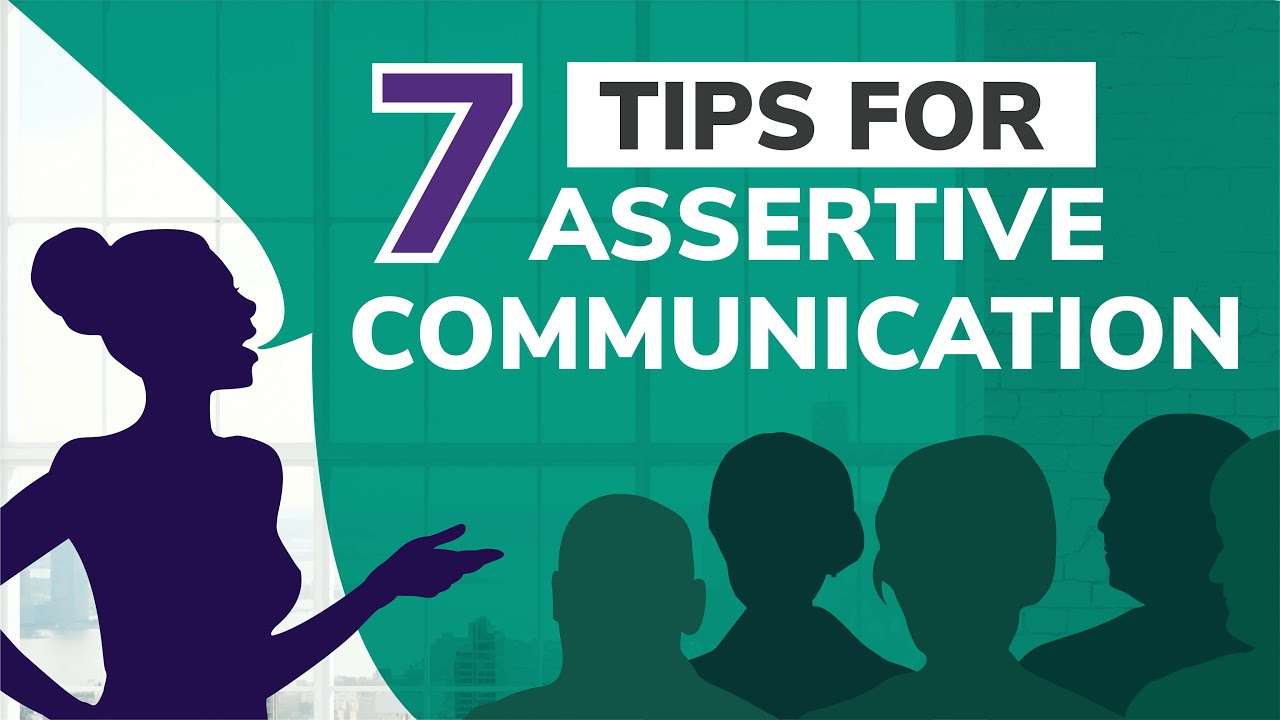Do you often feel as though you fail to get your opinions heard or that people readily dismiss or undermine your views? Maybe you have a habit of handling situations aggressively or lack the confidence to speak up.
You might have felt unable to do anything about it at the time, but by learning how to be more assertive, you can stand up for yourself with strong and confident communication. Stay tuned to the Moxie Talk blog, because we are going to discuss confident and assertive communication.
—
Hi everyone, I’m Fia Fasbinder. Welcome to the Moxie Talk blog where we help you find your voice, share your message, and lead with confidence. Now before I start this blog, if you are reading this, make sure to subscribe to our YouTube channel and hit that alert button so that you get notified of any new videos we put out.
Today, we are talking about assertive communication. We’re going to look at why assertiveness is important and explore some strategies that you can use to become more assertive and further both your confidence and your influencing skills.
A recent study found that people who experience anxiety may be passive during social interactions—perhaps they fear the consequences of expressing their unique needs and goals.
This study found that the consequence of such behavior can be the suppression or even the minimization of your own needs. Being unable to act in your own self-interest not only has an impact on social situations and relationships, but lack of assertiveness is associated with low relationship satisfaction and low self-esteem.
—
What Is Assertiveness?
First of all, what is assertiveness? Assertiveness is a key skill that can help you better manage yourself, people, and situations.
It can help you influence others in order to gain acceptance, agreement, or even behavior change. It’s the ability to express your opinions positively and with confidence. Assertive people are in control of themselves and are honest with themselves and with others.
Assertiveness Vs. Aggression
I often get asked as an assertive communication coach, “What is the difference between assertiveness and aggression?”
It’s not always easy to identify truly assertive behavior and that’s because there is a fine line between assertiveness and aggression. People can often confuse the two. For this reason, it’s useful to define the two behaviors so we can clearly separate assertiveness from aggressiveness.
Assertiveness is balanced and empathetic
Assertiveness is based on balance. It requires being forthright with your wants and your needs while still considering the rights needs and wants of others. Now when you’re assertive, you’re self-assured, you’re confident, and you draw power from this to get your point across firmly, fairly, and with empathy— keyword there: Empathy.
Speak considering others, not in spite of them
Aggressive behavior, on the other hand, is about winning. You do what is in your best interest without regard for the rights, needs, feelings, or desires of other people.
It’s my way or the highway!
When you’re aggressive the power you use is selfish. You may come across as pushy or even bullying — you take what you want often without asking.
Aggression is selfish
Let me give you an example of the difference. A boss who places a pile of work on your desk the afternoon before you go on vacation and demands that it gets done straight away is being aggressive.
The work needs to be done, but by dumping it on you at this inappropriate time, they disregard your needs and your feelings.
When you, on the other hand, inform your boss that the work will be done but only after you return from vacation, you hit that sweet spot between passivity, which would be not being assertive enough and not standing up for your own rights, and aggression which would be being hostile, angry, or rude about this request.
Thus you assert your own rights while recognizing your boss’s need to get the job done. Hopefully, that demonstrates a good difference for you between aggressiveness and assertiveness.
—
The Benefits Of Being Assertive
Let’s talk briefly about the benefits of being assertive. I know that this seems pretty nervy for a lot of you, so let’s talk about the benefits and give you a good incentive.
Being assertive allows you to communicate your wants and your needs more authoritatively while remaining fair and empathetic. It can also help you become more self-confident. Studies have shown that it even improves your mental health.
Assertiveness provides other benefits that can help you both in your work life and in other areas of your life.
Assertive people make great managers
In general, assertive people make great managers because they get things done by treating people with fairness and respect and are treated by others the same way in return.
If people feel listened to, they will listen to you.
This means that they’re often well-liked and seen as leaders that people want to work with.
Assertive people are good negotiators and problem solvers
Assertive people also negotiate successful win-win solutions. They’re able to recognize the value of their opponent’s position and can quickly find common ground with them.
Assertive people want everyone to win
They’re better doers and problem solvers and they feel empowered to do whatever it takes to find the best solution to the problems that they encounter. They’re also less anxious and less stressed because they don’t feel threatened or victimized when things don’t go as planned or as expected.
They don’t act aggressively which would be threatening or like a victim which would be way too passive. Additionally, they have greater job satisfaction because they feel confident to say “Yes” to the person and “No” to the task.
—
“Risks” Associated With Being Assertive
Now in order to maintain boundaries, you may be wondering “Are there any risks associated with being assertive?”
Some organizations and cultures prefer people to be passive and may view assertive behavior as rude or even offensive. Research has also suggested that gender can have a bearing on how assertive behavior is perceived — with men more likely to be rewarded for being assertive than women.
Nevertheless, if you’re a woman reading this blog, this is by no means saying that you should simply succumb to the status quo. If you are reading this, you know that I would much rather women be bold but also be aware that your assertiveness may be perceived as aggression.
NOT YOUR PROBLEM
Keep doing exactly what you’re doing and if you’re worried about hitting the right balance between assertiveness and aggressiveness, experiment with small steps at first until you find what’s right for you.
A little assertion at the right time can be highly effective and it’s a great way of developing your sense of self-confidence and I coach this to women all the time. It doesn’t feel good to be passive; it doesn’t feel good to be aggressive — Assertiveness feels great.
Even if you’re worried about being perceived as aggressive, I would much rather you be bold, take some risks, and experiment with what feels right to you with assertiveness. It’s not always easy to become more assertive, but it is possible.
How do you be assertive?
If your disposition or your workplace tends to be more passive or aggressive than assertive, I have 7 tips for assertive communication to help you find the right balance.
—
Tip 1: Value Yourself And Your Right
First, value yourself and your rights. In order to be more assertive, you need to gain a good understanding of yourself as well as a strong belief in your inherent value and the value that you bring to the organization and the team.
This self-belief is the basis of self-confidence and assertive behavior. It will help you recognize that you deserve to be treated with dignity and respect and give you the confidence to stick up for your rights and protect your boundaries, to remain true to yourself, your wants, and your needs.
A quick side note: Self-confidence is an important aspect of assertiveness, but it’s crucial that you make sure that it doesn’t develop into a sense of self-importance or self-entitlement.
Your rights, thoughts, feelings, needs, and desires are just as important as everyone else’s but not more important than anyone else’s.
—
Tip 2: Voice Your Needs And Your Wants Confidently
Second, voice your needs and wants confidently. You’ve probably heard that old saying,
don’t ask, don’t get.
If you are going to perform to your full potential then you need to make sure that your priorities, your needs, and your wants are met. You can’t wait for someone else to recognize what you need—you might wait forever if you do this.
I’m telling my kids this confidently, “You have to ask, people, can’t read your mind.” So this requires you to take the initiative and start to identify the things that you want now.
Write them down. Make them clear and specific
Then set some goals so that you can achieve them. Once you’ve done this, you can tell your boss or your colleagues exactly what it is that you need from them to help you achieve these goals in a clear and confident way.
Don’t forget to stick to your guns. Even if what you want isn’t possible right now, ask politely whether you can revisit your request in six months’ time.
You can find ways to make requests that avoid sacrificing others’ needs. Remember, you want people to help you. Asking for things in an overly-aggressive way or a pushy way is likely to put them off from doing these things and it might even damage your relationship with those people.
A ‘NO’ now can change later. Be patient and flexible
Therefore, even if you’re feeling some resistance to your ask, don’t get aggressive and don’t get passive. Stick to your guns.
—
Tip 3: Let Others Own Their Behavior
Third, acknowledge that you can’t control other people’s behavior—this is really important. Don’t make the mistake of accepting responsibility or blame for how people react to your assertiveness.
This is what I’m telling my women clients all the time. If they for example act angry or resentful towards you, try to avoid reacting to them in the same way—don’t blow up just because they blow up. Remain calm, remain confident, and remain assertive.
Remember, you can only control yourself and you can only control your own behavior. Do the best you can to stay calm and measured even if things get tense. As long as you’re being respectful and not violating someone else’s needs, then you have the right to say or do what you want.
By doing so you may be paving the way in your company for assertive behavior. This might be a really positive step forward in your company for assertive-versus-passive or aggressive behavior.
Now if somebody reacts negatively to you, don’t rise up to meet them—it’s like the Martin Luther King quote that “You can’t fight fire with fire.”
—
Tip 4: Express Yourself Positively
Fourth, express yourself in a positive way. It’s important to say what’s on your mind even when you have a difficult or negative issue to deal with. But you must do it constructively and sensitively.
Don’t be afraid to stand up for yourself and confront people who challenge you and your rights. You can even allow yourself to be angry but remember to control your emotions and stay respectful at all times. Repeat a mantra to yourself if you need it: ‘Water off a duck’s back.’ or ‘Lead with love.’
Do whatever it is you need to do to stay level-headed even in the face of chaos. Stay calm, collective, and positive.
—
Tip 5: Be Open To Criticism And Complaints
Fifth, be open to criticism and compliments. Accept both positive and negative feedback graciously, humbly, and positively.
If you don’t agree with the criticism that you receive then be prepared to say so but without getting defensive or angry. We spend a lot of time trying to prove feedback wrong and one technique that I love and I use this with my coaches I use with my clients is a
Feedback Matrix
This can be found online. It’s a great tool that you can help see past your emotional reactions to feedback and instead use it to achieve significant positive changes. It’s very grounded in concrete evidence of change.
So we have feedback matrices here at Moxie for both crafting a presentation and delivering a presentation. I suggest looking into those if it’s something that you need to use both for yourself or give to somebody higher up to give you feedback.
—
Tip 6: Learn To Say No
Sixth, learn to say ‘No.’ Look—saying ‘No’ is hard to do especially when you’re not used to doing it. But it is vital if you want to become more assertive.
Knowing your own limits and how much your work is worth and how much you’re able to take on will help you manage your tasks more effectively and to pinpoint any areas of your job that make you feel as though you’re not being valued or that you’re being taken advantage of.
Remember that you can’t possibly do everything or please everyone. Therefore, it’s important to protect your time and your workload by saying ‘No’ when necessary.
As a working mother and a CEO of a company, I have learned to say ‘No’ many times to protect my time, my energy, and force-rank the highest and best use of my time.
What’s more, When you do have to say ‘No,’ if possible try to find a win-win solution that works for everyone.
—
Tip 7: Review Your Progress
Last but not least, the seventh technique is to review your progress. Every time that you try out your assertiveness, spend a couple of minutes afterward asking yourself, ‘How did I handle that? What did I do well?’ or ‘What might I do differently next time?’
This will help keep you on track and help you identify areas for development. If you experience a setback, don’t let it deter you. Instead, try to learn from it. It’s important to recognize both our successes and keep our failures in perspective—you hear me say this all the time in my videos and blogs.
I hope that this blog was valuable for you and you found some new techniques to help you on your assertive communication journey.
If you found this to be valuable, please feel free to pass it on to a friend, family member, or colleague who might benefit from some assertive communication training. If you want more information about our assertiveness training services, check out our Executive Presence And Assertiveness Training.
Until next time I see you, make sure to live brilliantly, lead boldly, and Speak with Moxie.









